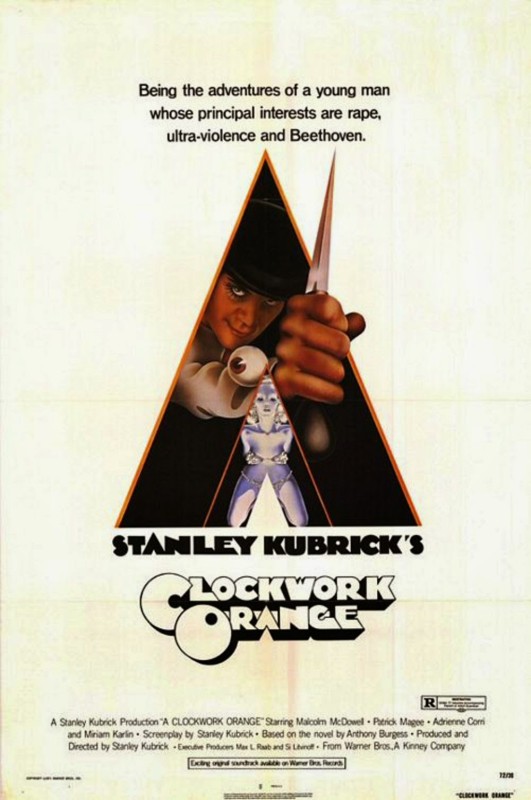CHECK OUT OUR EPISODE ABOUT 1971
One of my least favorite clichés is the idea that “They don’t make movies like they used to”. This attitude not only makes the speaker sound tired and old but also is a huge disservice to the many outstanding filmmakers at work at basically anytime in the history of the medium if one chooses to look. My attitude is that we are always in debt to the music, books, movies, etc. that defined our youth and as we grow older and more sentimental about the past and have less time to develop new tastes, we naturally assume that all art from our respective generation must have been the greatest that ever existed or ever will. I was born in 1976 and came of age in the 1990s but I never felt completely in step with the tastes of my era. Naturally I loved the explosion of Indie and Foreign Film that took the world by storm at that time, but as I became obsessed with movies, I came to accept that nearly all of my favorite directors were long dead before the time that cinema seized control over my brain like a drug. Perhaps I’m drawn to amazing filmmakers whose filmographies are complete and able to be appraised at a glance whereas filmmakers working today could still rise or sink in my estimation depending upon work they might do in the future. What I do know is that in 1971 many of the greatest filmmakers who ever lived simultaneously released some of their best work. It is almost an embarrassingly incredible year of movies. At the time, most of my favorite directors in film history were still active or just getting started. I don’t know what was in the water or the air that year (probably drugs), but the films that came out of that period created a ripple effect that is felt to this very day. So without any real rhyme or reason to the order of these films I want to call attention to the essential films of 1971, some damn good runner-ups and a list of potentially amazing movies that I have yet to see. Naturally if you see something missing from my list, I would be indebted if you would let me know.
A Clockwork Orange
Carnal Knowledge
Better known today for films like “The Graduate” (1967) and “Who’s Afraid of Virginia Woolf? (1966), my personal favorite of Mike Nichols’ work is “Carnal Knowledge”. Some feel that this film is needlessly bleak about human relationships but I find the movie absolutely hysterical. The movie is completely unflinching in its depiction of the ups and downs of human relationships and Jack Nicholson and Ann-Margret were never better.
Fata Morgana
The Last Picture Show
That list is drool-inducing to look at and once again I am floored by just how many of my favorite filmmakers were operating at the peak of the powers in 1971. Sadly Orson Welles did not make the list in that he was juggling several projects in that year but nothing was released and it wounds me that Howard Hawks had wrapped up his career the year before. If Hawks and Welles had managed to release movies that year, my head would likely just explode. The year also has so many more movies that are well worth hunting down including Jack Hill’s The Big Dollhouse, Mario Bava’s A Bay of Blood, Dario Argento’s The Cat o’ Nine Tails, Let’s Scare Jessica to Death, Willy Wonka & the Chocolate Factory, Hal Ashby’s Harold and Maude John Schlesinger’s Sunday Bloody Sunday, Shaft, Klute, George Lucas’ THX 1138, Clint Eastwood’s Play Misty For Me, William Friedkin’s The French Connection, Don Siegel’s Dirty Harry, Sweet Sweetback’s Baadasssss Song, Mike Hodges’ Get Carter, Monte Hellman’s Two-Lane Blacktop, Sergio Leone’s Duck, You Sucker!, Vittorio De Sica’s The Garden of the Finzi-Continis, The Hospital, Panic in Needle Park, The Omega Man, Le Mans, Roman Polanski’s Macbeth, Wake in Fright,Werner Herzog’s Land of Silence and Darkness, Dennis Hopper’s The Last Movie, & Diamonds are Forever.
I’m also fully aware that I left many films off this list because I am still working my way through this extraordinary treasure trove of cinema. I still need to see: Ingmar Bergman’s The Touch, Vanishing Point, Steven Spielberg’s Duel, The Abominable Dr. Phibes, Billy Jack, Nicolas Roeg’s Walkabout, Escape from the Planet of the Apes, Brian’s Song, Death in Venice, Fiddler on the Roof, Nicholas and Alexandra, 10 Rillington Place, Francois Truffaut’s Anne and Muriel, Mon Oncle Antoine, John Cassavetes’ Minnie and Moskowitz, And Now for Something Completely Different, and Bedknobs and Broomsticks. I apologize for any film that I missed in my overview and I’ll be the first to revise it if you have anything you would suggest that deserves to be included.
I am one of the Co-Hosts of the podcast Wrong Reel and you can find our material here:
Subscribe on iTunes
Check us out on Stitcher radio
Follow us on SoundCloud




.jpg)









